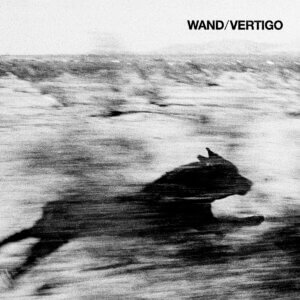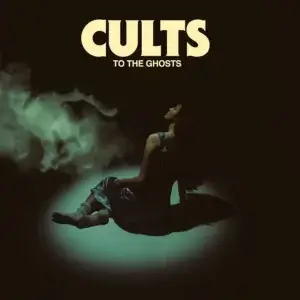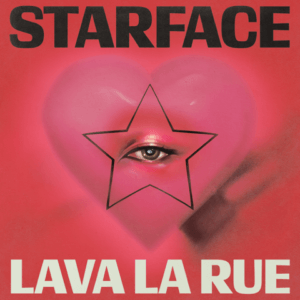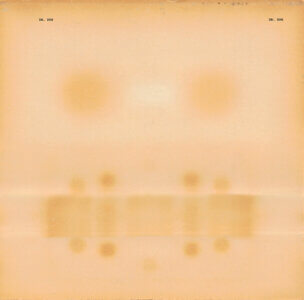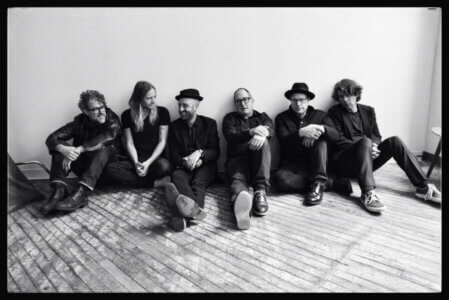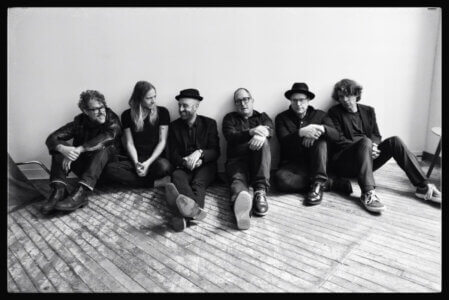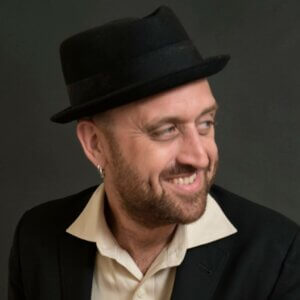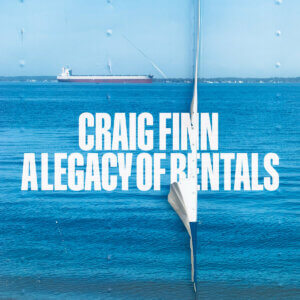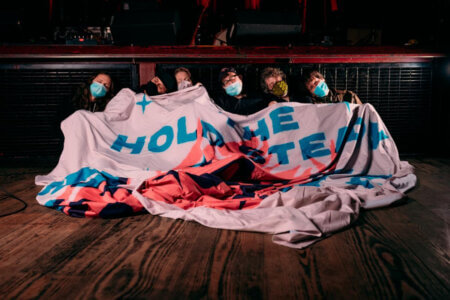Franz Nicolay is invigorated
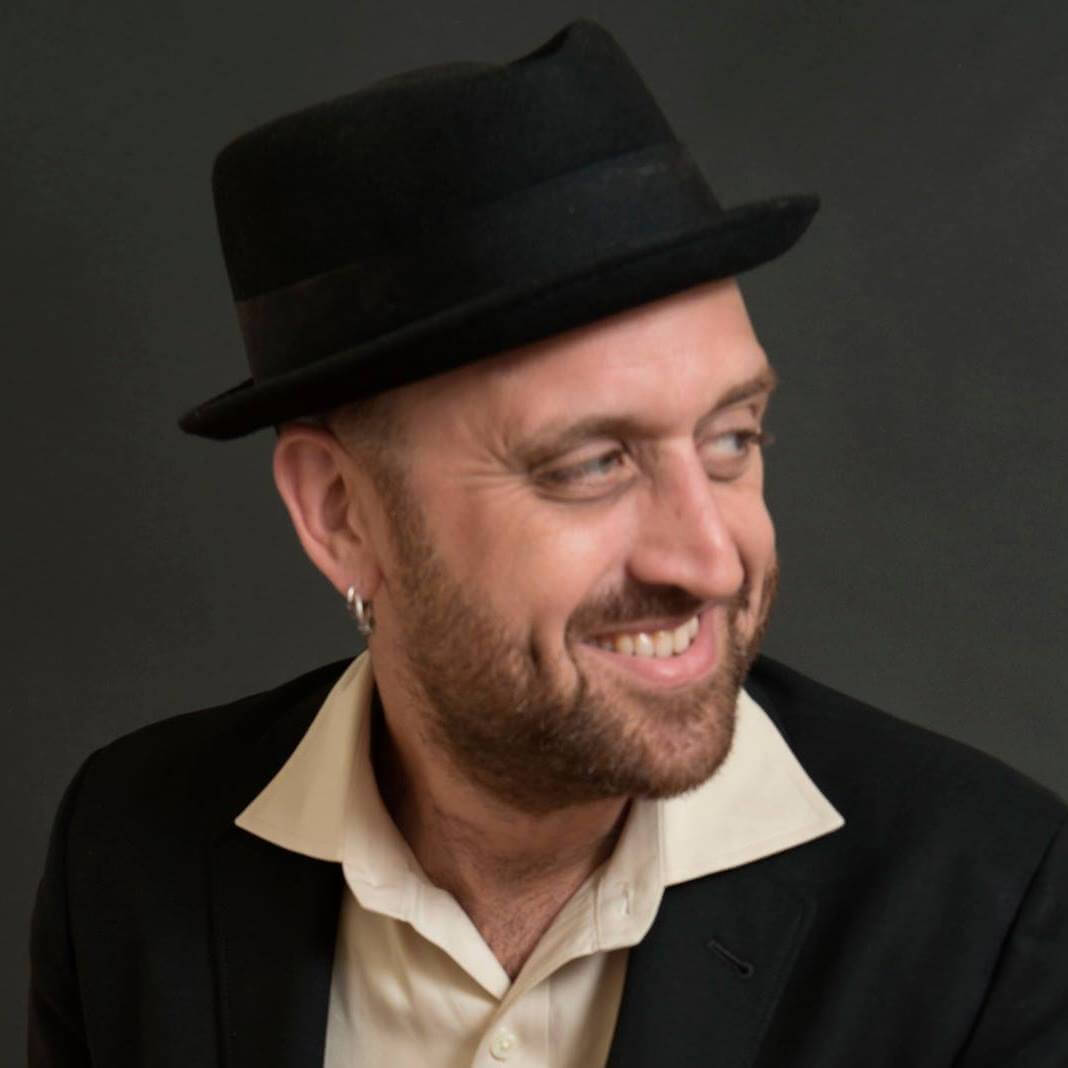
Franz Nicolay Establishes A Collection While Embracing Collaboration Through his talents on both accordion and piano for New York City bands The World/Inferno Friendship Society and currently The Hold Steady, Franz Nicolay has always stood out as an artist. He has an eclectic resume that consists of collaborating and performing with the likes of The Dresden Dolls, The Living End, Frank Turner and Against Me! among others and he’s also an author of a couple novels. His solo material is the true representation of his musical identity while showing his brilliance as a songwriter. Nicolay’s latest release New River, which came out on November 11 via Don Giovanni Records, exhibits a reinvigoration of his craft. It provides a listening experience with a variety of elements at play due to a bunch of musicians joining up with him for the entirety of the record.
We recently had a talk about the making of the album, collaborating remotely in a few different ways, having a fan base in Mexico and framing the record to convey a theme.
Northern Transmissions: During the making of New River, what would you say you were aiming to accomplish during the songwriting and recording process and how would you describe the experience of going out to Oakland, California for the recording sessions with Jesse Nichols at Atomic Garden?
Franz Nicolay: I was living out there at the time. My family was living in Berkeley for over three years so that was sort of the convenient and affordable recording option. I knew about Atomic Garden mostly because [Jeff] Rosenstock records there and this band Telethon from Milwaukee flew me out there to play on their record a few years ago at the studio’s previous space. It seemed like the obvious choice, I looked at a couple other studios but essentially the price was right. I was just trying to record some songs,
I hadn’t done a record in a few years and there was a period of that time where I was actively not trying to write songs because I knew once I had some songs then I’d want to record them, I’d want the record to come out and once the record would come out I’d want to go on tour so I tried to pivot my life into a different direction. Like for many people, during the early months of the pandemic I had some time on my hands so after the kids went to bed I started pulling together some of the songs that I had been writing over the previous years. I had stacks and stacks of lyrics or just sort of raw verbal material that could be funneled towards my fiction writing or towards lyrics. I started assembling bits and pieces to see if there were songs to be had and it turned out there were. I pulled together the material around April of 2020, for obvious reasons I couldn’t get people into the studio to record it for another year and that was the session.
NT: Musically the songs run through a variety of styles ranging from jazz to folk to punk to piano rock to baroque pop to straight ahead rock & roll. When it comes to songwriting, are you always searching for something different or peculiar to include or do you consider this wide-ranging approach to be relatively natural for you?
FN: I think that genre is a marketing term, not a meaningful musical term so I come up with musical bits and pieces as they come while not worrying too much about what to call it. To sort of tie it into the previous question, there’s a way of thinking about an album that has to be tied together thematically and I think this one does in the sense that there’s an editorial process about which lyrics I picked, expanded and collected. That sort of speaks to the things that I was
interested in at the time or there’s the theory of the record that just says “Hey look, here’s the basket of songs that I harvested in this time period.” While I think there is a thematic unity to the lyrical content, I consider this to primarily be a basket of songs that I harvested.
NT: From listening to the album there’s definitely a lot to offer which I really enjoyed both sonically and arrangement wise. You had a ton of musicians collaborate with you on the album including Jeff Rosenstock, Ara Babajian from The Slackers, Deanna Belos from Sincere Engineer and your bandmate in The Hold Steady Steve Selvidge just to name a few. How did you go about getting all of these other musicians involved? Were they all in the studio with you? Did you have some remote recordings coming in via email or Zoom?
FN: Primarily it was the latter. My main collaborators on the record were Ara on drums and Frank Piegaro on bass, Frank also lives in the Bay Area so he was right there and Ara came out and recorded once flying became a safe possibility. Then the rest was all, as you say, remotely. One of the nice things about the pandemic period is that most of the musicians I knew took the opportunity to save the money they were making on touring and going out and investing it into their home recording. Very quickly during the early months I started getting people emailing me saying “Hey, I’ve been making this record at home could I send you some files to play piano on or play accordion on.
” There was a lot of that going on and so I just wanted to join the game, I had done that on the Sincere Engineer record so I reached out to Deanna to see if she could do something on my album and it was a similar thing with Lauren [Denitzio] from Worriers. Rosenstock was mixing his album Ska Dream in the other control room at Atomic while we were tracking this record. When he found out Ara and I were there he asked us to play on his record while saying “Hey, if you have anything I can contribute to I’d love to do it” and so I sent him two tracks. Peter Hess, who did the horn arrangements, is a long time collaborator going back to The World/Inferno Friendship Society. He did horns for the first four of five Hold Steady records and we’ve done many, many things together. [Steve] Selvidge is a Memphis guy, sort of Memphis music royalty, so he has those really tasty Teenie Hodges licks under his fingers so on “New River, Spring For Me” he was an obvious choice to ask to do the guitar part for it. The song “Your Ode Played By French Horns” is actually one Steve and I co-wrote together, that’s because it was a song we originally pitched as a Hold Steady song. It didn’t make it but we both thought it was a really good song so I wrote some lyrics to it and recorded it.
NT: You can definitely notice all of the talents involved within the tracks from start to finish. New River also has some ties to Mexico due to David Espinoza Alvarez doing theartwork for it and Diana Morales directing the music video for “New River, Spring For Me”. How did you get connected with both David and Diana and what was it like working with them?
‘
FN: That was also remote. I’ve always loved woodcut style artwork and there’s a cluster of people in the Mexico City area who really like my solo records for whatever reason. Occasionally over the previous decade I’ve talked about getting down there to play and I figured eventually I’d do that before they lost interest so I had to take advantage of it. I went down there in January of 2020 to play a show and it was fantastic. David actually wasn’t there, he lived too far away but he’s a pretty well-known designer in certain circles down there and I felt so connected to that group of people that I just wanted to continue that feeling. I knew that David had the chops and he liked my music so I just asked him if he would be interested and he did an amazing job. It’s probably the best looking record that I’ve made. I also asked him if he knew anyone who wanted to do a video and it turned out his partner Diana does video content so we did it and that’s how it happened.
NT: It’s cool that it worked out conveniently that way. You’ve mentioned that this album is pretty much a collection of songs, but is there anything that you’d like to connect with the listener on when they check out New River? Is there any certain messaging you’d like to get across?
FN: I think there is a framing and I always like to connect the first track and the last track. Putting a frame around any group of things organizes them while making people look for the meaning within those particular things. The frame here very intentionally is “Wandering Star” first and “New River, Spring For Me” last. “Wandering Star” is about not wanting to look backwards while not knowing what the path forward is and where it goes, which is sort of how I felt about my life and career particularly in music between 2014 and 2020. Everybody has a midlife crisis at some point.
The metaphor for “New River, Spring For Me” is pretty explicit. It’s about finding a new wellspring of inspiration and sort of seeing a glimmer of sunrise in the distance that you can walk towards.
Order New River by Franz Nicolay HERE
Latest Reviews
Tracks
Advertisement
Looking for something new to listen to?
Sign up to our all-new newsletter for top-notch reviews, news, videos and playlists.
